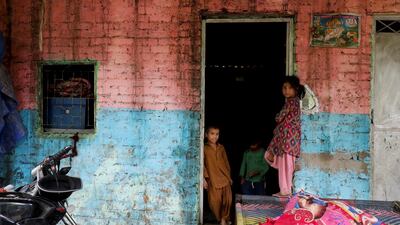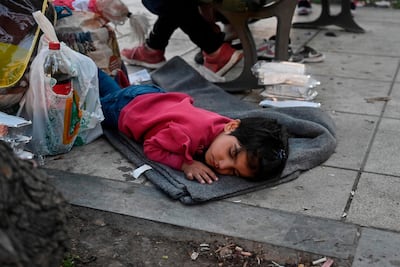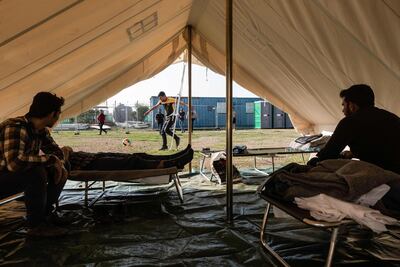Today, we observe World Refugee Day and honour the extraordinary strength and resilience of forcibly displaced women, men, and children.
This year has thus far been challenging for many of us, as the Covid-19 pandemic takes a toll on global health systems and the economy, as well as on our societies and individual lives. As always, the most vulnerable are also those most affected by these challenges, chief among them, refugees and displaced persons. Yet, many acts of resilience, solidarity, and a greater sense of individual and collective responsibility have shined through these successive crises.
The pandemic has revealed the shortcomings in our societies, as have recent protests against racism and police brutality. We must fight for a more inclusive world where equality reigns and no one is left behind. We all have a role to play in enacting change. This idea is at the heart of World Refugee Day this year, when we remind ourselves that every action counts in an effort to create a more just and inclusive world.
UNHCR's recently published Annual Global Trends report shows that forced displacement now affects more than one percent of humanity, with less and less people able to return home every year. The number of forcibly displaced people hit a new record of 79.5 million in 2019, a result of new displacement, particularly in the Democratic Republic of the Congo, the Sahel, Venezuela, Yemen and Syria. Forced displacement has almost doubled since 2010, with more than 75 per cent of world refugees caught up in long-term displacement and unable neither to return home nor to build a new future in their host country.
Yemen, home to the world's largest humanitarian crisis, now faces the coronavirus pandemic and natural catastrophes. As the conflict enters its sixth year, it is estimated that more than 3.6 million people have been forced to flee their homes in Yemen, with more than 80 per cent of the population requiring humanitarian assistance. Nearly four million IDPs, returnees, refugees and asylum-seekers rely on regular humanitarian aid. Syria, meanwhile, accounts on its own for 13.2 million refugees, internally displaced people, and asylum seekers in the 10th year of the conflict.
In the Sahel region, escalating violence targeting civilians includes summary execution, the widespread use of rape as a weapon of war against women, in addition to attacks against state institutions, schools and health facilities. This situation has turned three million people into refugees, IDPs, returnees and people at risk of statelessness. Local communities have been extremely generous and supportive, but humanitarian needs exceed their capacities.
Armed conflict that sparked in 2011 in northern Mali has now spread to central Mali, Niger, and Burkina Faso with indirect effects in neighbouring countries such as Chad and Mauritania. In Burkina Faso, the number of people internally displaced has more than quadrupled from 193,000 in June 2019 to 848,000 at the end of April. During this challenging time, UNHCR is providing shelter assistance, core relief items and protection services, while following an eco-friendly approach to prevent climate-related displacement.
The 2030 Sustainable Development commitment of “leaving no one behind” now also explicitly includes refugees, thanks to a new indicator.
Although refugees are vulnerable and often disadvantaged, they have managed to shine when generous societies and enlightened governments give them the chance to be accepted. On this World Refugee Day, let us renew our personal and collective commitment to give every refugee, displaced and stateless person, an opportunity to contribute to the common good, and make a difference in their lives.
Nadia Jbour is the head of the UNHCR office in the UAE



